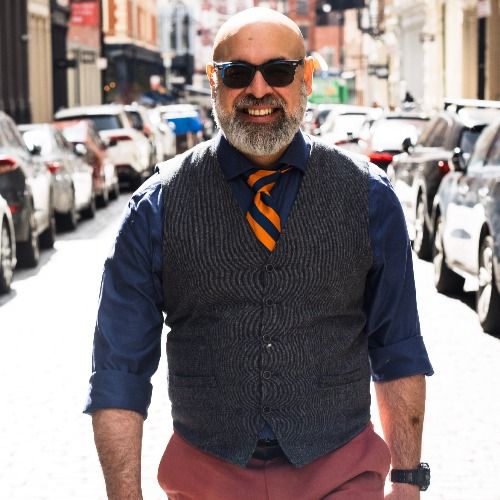Episode 132
Full-Body Hyperthermia for Prostate Cancere with Dr. Gurdev Parmar
In this episode of the Dr. Geo Prostate Podcast, Dr. Geo welcomes Dr. Gurdev Parmar, a pioneer in naturopathic and integrative oncology. They dive deep into the science and application of hyperthermia as a cancer treatment, particularly for prostate cancer. Dr. Parmar explains the different types of hyperthermia—local-regional, which targets tumors, and whole-body, which mimics a fever to stimulate the immune system. They discuss how hyperthermia enhances cancer treatments by increasing oxygenation, producing heat shock proteins that make cancer cells more recognizable to the immune system, and sensitizing tumors to radiation and chemotherapy.
The conversation also explores the challenges of FDA approval, the state of clinical research, and why hyperthermia isn’t more widely available in the U.S. Dr. Parmar shares insights from his 14 years of treating patients with hyperthermia and how this therapy, when combined with integrative oncology, has led to significant improvements in survival rates.
Key Takeaways:
- Hyperthermia works by raising tissue temperature, making cancer cells more vulnerable while sparing healthy cells.
- Heat shock proteins triggered by hyperthermia help the immune system recognize and attack cancer cells.
- When used alongside radiation or chemotherapy, hyperthermia improves treatment effectiveness by increasing tumor oxygenation.
- Whole-body hyperthermia mimics a natural fever response, enhancing the body’s immune defense against cancer.
- A typical treatment cycle includes multiple local-regional hyperthermia sessions per week, with whole-body hyperthermia performed once a week for two sessions.
- Despite strong evidence supporting hyperthermia, regulatory and financial barriers limit its availability in the U.S.
- Clinical data from Dr. Parmar’s practice shows significantly improved survival rates in stage 4 cancer patients using hyperthermia as part of a multimodal treatment approach.
Tune in for an eye-opening discussion on the potential of hyperthermia in cancer care and why it remains an underutilized tool in oncology.
----------------
Thank you to our partners
The ProLon 5-Day Fasting Mimicking Diet is a plant-based meal program designed to provide fasting benefits while allowing food intake. Developed by Dr. Valter Longo, it supports cellular renewal, fat loss, and metabolic health through low-calorie, pre-packaged meals that maintain the body in a fasting state.
Special Offer: Thank you for listening, you can purchase the ProLon kit for just $148 by using this link.
We’d also like to thank our partner AG1 by Athletic Greens. AG1 contains 75 high-quality vitamins, minerals, whole-food sourced ingredients, probiotics, and adaptogens to help you start your day right. This special blend of ingredients supports your gut health, nervous system, immune system, energy, recovery, focus, and aging. All the essentials in one scoop. Enjoy AG1 by Athletic Greens.
----------------
Thanks for listening to this week's episode. Subscribe to The Dr. Geo YouTube Channel to get more content like this and learn how you can live better with age.
You can also listen to this episode and future episodes of the Dr. Geo Podcast by clicking HERE.
----------------
Follow Dr. Geo on social media. Facebook, Instagram Click here to become a member of Dr. Geo’s Health Community.
Improve your urological health with Dr. Geo’s formulated supplement lines:XY Wellness for Prostate cancer lifestyle and nutrition: Mr. Happy Nutraceutical Supplements for prostate health and male optimal living.
You can also check out Dr. Geo’s online dispensary for other supplement recommendations Dr. Geo’s Supplement Store
____________________________________
DISCLAIMER: This audio is educational and does not constitute medical advice. This audio's content is my opinion and not that of my employer(s) or any affiliated company.
Use of this information is at your own risk. Geovanni Espinosa, N.D., will not assume any liability for any direct or indirect losses or damages that may result from the use of the information contained in this video, including but not limited to economic loss, injury, illness, or death.

